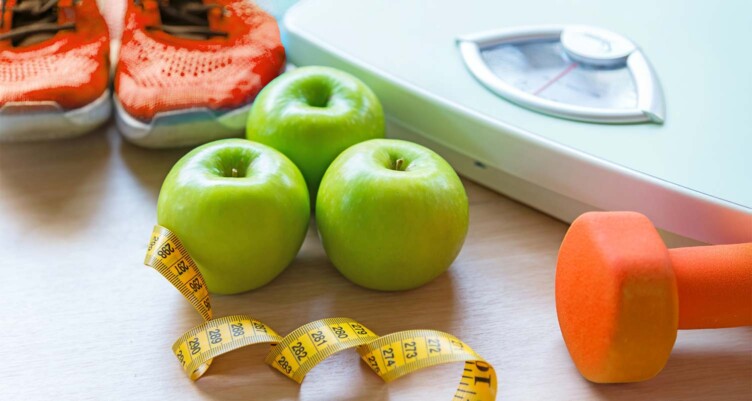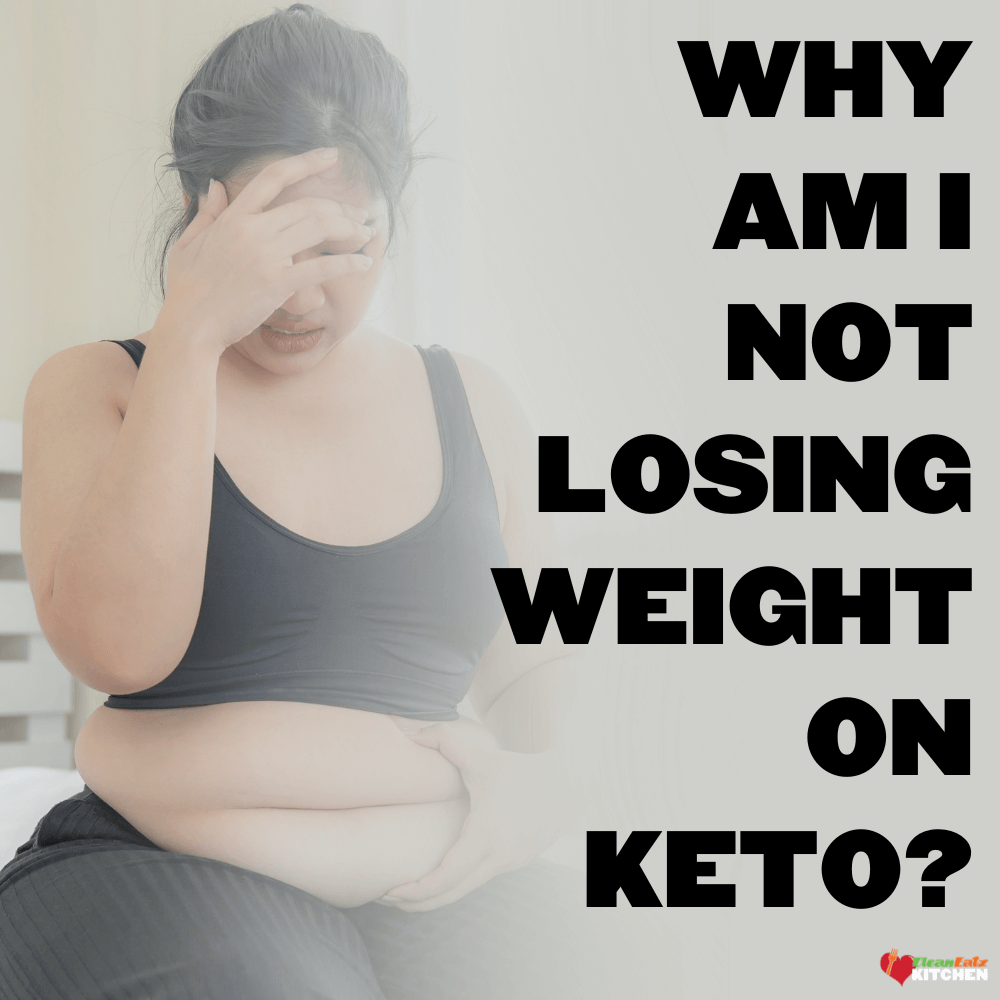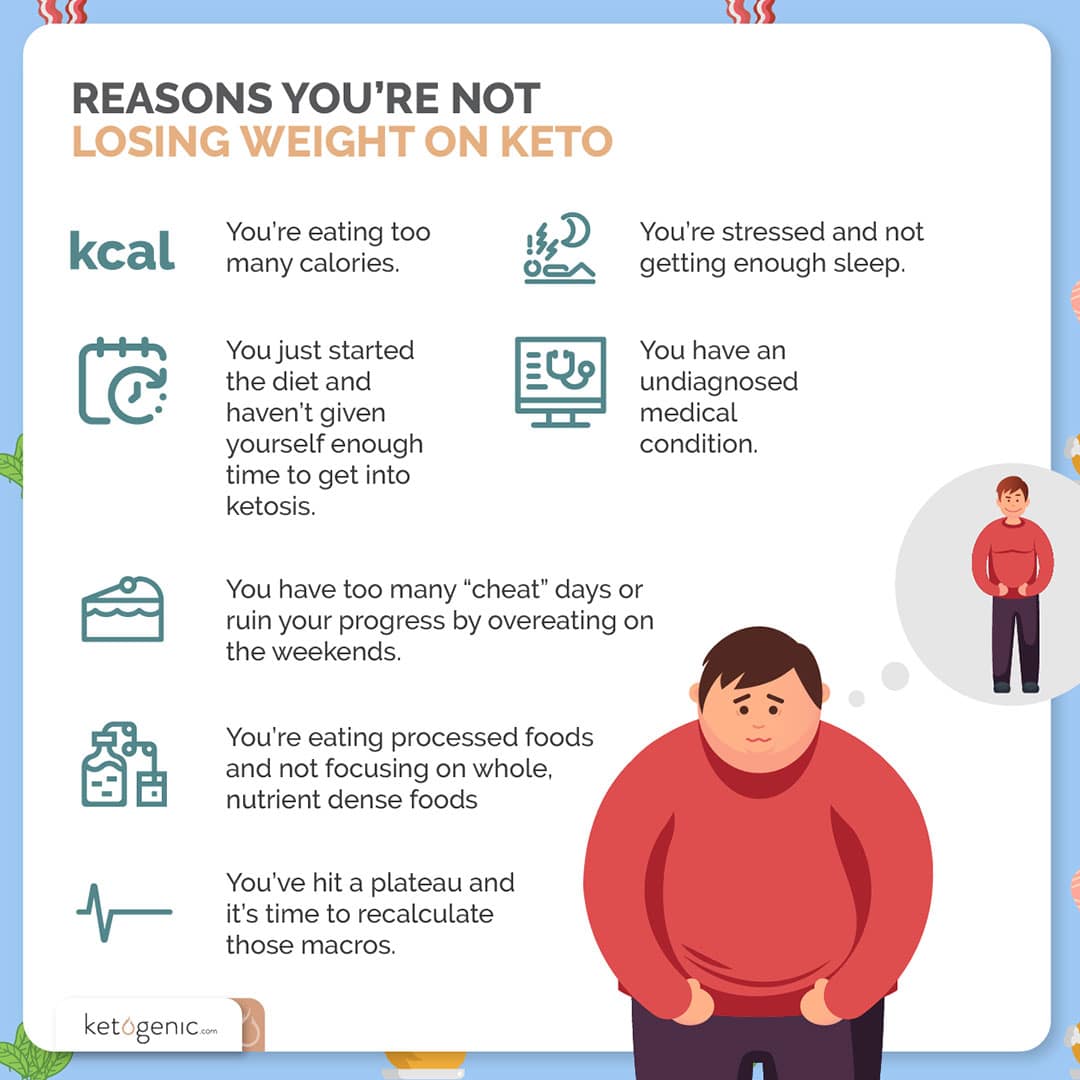Are you following the keto diet but still not seeing the pounds drop? You’re not alone.
Many people get stuck wondering why keto isn’t working as expected. It’s frustrating to cut carbs, eat all the fats, and stay in ketosis—yet the scale refuses to budge. But here’s the truth: being in ketosis doesn’t guarantee weight loss.
Your body’s fat-burning mode is just one piece of the puzzle. If you want to break through that plateau and finally reach your goals, you need to understand what might be holding you back. Ready to find out why keto isn’t melting your weight away and what you can do about it? Keep reading—this could change everything.
Calorie Intake
Calorie intake plays a key role in weight loss on a keto diet. Being in ketosis means your body uses fat for energy, but it does not guarantee weight loss. Consuming more calories than your body burns can stop weight loss or even cause weight gain. Monitoring how many calories you eat is essential to see results.
Avoiding Overeating Fat
Fat is the main fuel on keto, but it is still high in calories. Eating too much fat can increase your total calorie intake. This extra energy can prevent weight loss. Portion control helps avoid eating more fat than your body needs. Stick to moderate fat servings to stay in a calorie deficit.
Tracking Food Consumption
Keeping track of every meal helps manage calorie intake. Use apps or food journals to record what you eat. This practice reveals hidden calories from fats and snacks. Tracking also helps identify patterns that block weight loss. Staying aware makes it easier to maintain a calorie deficit and lose weight.

Credit: www.bulletproof.com
Protein Consumption
Protein plays a vital role in the keto diet. It supports muscle maintenance and keeps hunger at bay. But too much protein can cause problems. Understanding how protein affects weight loss helps you adjust your intake wisely.
Limiting Excess Protein
Eating too much protein can slow down weight loss on keto. Excess protein can turn into energy instead of fat burning. Your body uses protein for repair, but extra amounts may store as fat. Keep protein moderate to stay in fat-burning mode.
A good rule is to eat enough protein to feel full. Avoid large portions that push your total calories too high. Focus on quality protein sources like meat, eggs, and fish. Measure portions to control intake and support your keto goals.
Protein Conversion To Glucose
The body can convert excess protein into glucose. This process is called gluconeogenesis. Glucose raises blood sugar and insulin levels. High insulin can stop ketosis and slow fat loss.
This means too much protein can kick you out of ketosis. Your body prefers to burn fat for fuel in keto, not sugar. Watch your protein amounts to prevent glucose spikes. Staying within keto protein limits helps keep fat burning active.
Food Quality
Food quality plays a big role in your keto weight loss journey. Eating the right foods helps your body burn fat more efficiently. Not all keto foods are equal. Some choices can stall your progress or even cause weight gain.
Focus on whole, natural foods that give your body the nutrients it needs. Avoid foods that are high in unhealthy fats or empty calories. The right food choices can keep you feeling full and energized.
Choosing Nutrient-dense Foods
Pick foods rich in vitamins, minerals, and healthy fats. Leafy greens, avocados, nuts, and fatty fish are great options. These foods support your metabolism and overall health. Nutrient-dense foods also help reduce cravings and keep hunger in check. Eating quality foods means your body gets what it needs without extra calories.
Avoiding Processed Keto Snacks
Many keto snacks are processed and high in unhealthy fats or artificial ingredients. These can slow down your weight loss or cause inflammation. Avoid packaged bars, cookies, and chips labeled “keto” but loaded with additives. Instead, choose whole foods like cheese, olives, or raw nuts. Real foods fuel your body better and help maintain steady energy levels.
Alcohol Effects
Alcohol can affect your keto journey and weight loss efforts in several ways. Many people on keto enjoy a drink but don’t see the scale move. Understanding how alcohol interacts with ketosis helps explain this. Alcohol contains calories and impacts how your body burns fat. It also influences hunger and food choices, which can stall progress.
Impact On Ketosis
Alcohol can slow down ketosis. Your liver processes alcohol first, which pauses fat burning. This means your body stops using fat for fuel temporarily. Some alcoholic drinks have hidden sugars and carbs. These can kick you out of ketosis. Clear spirits like vodka or gin have fewer carbs and are better options. Still, drinking too much makes it harder to stay in ketosis.
Moderation And Low-carb Choices
Drink alcohol in moderation to avoid weight loss stalls. Choose low-carb options like dry wine or spirits mixed with soda water. Avoid sugary cocktails and beer, as they contain many carbs. Drinking less helps control calorie intake and reduces cravings. Planning your drinks can keep you on track with keto goals. Remember, moderation supports steady weight loss.
Lifestyle Factors
Lifestyle factors often influence weight loss on keto more than diet alone. Stress levels and sleep quality impact how your body burns fat and regulates hunger. Ignoring these can stall progress despite strict keto adherence.
Managing Stress
Stress triggers hormones like cortisol that increase fat storage. High cortisol can cause cravings and overeating. Find ways to relax daily. Simple activities such as walking, deep breathing, or listening to music help. Managing stress supports steady weight loss and overall health.
Improving Sleep Quality
Poor sleep disrupts metabolism and hunger hormones. Lack of sleep often leads to higher appetite and cravings for carbs. Aim for 7 to 8 hours of restful sleep each night. Create a calming bedtime routine and limit screen time before bed. Good sleep boosts energy and helps your keto efforts succeed.

Credit: www.cleaneatzkitchen.com
Medical Conditions
Some medical conditions can slow or stop weight loss on keto. These issues affect metabolism and hormone balance. They may cause the body to hold on to fat instead of burning it. Recognizing these conditions helps you address the real cause of weight gain or stall.
Identifying Underlying Issues
Common medical problems include thyroid disorders, insulin resistance, and hormonal imbalances. These conditions disrupt normal fat burning and energy use. Symptoms like fatigue, mood changes, and irregular periods can be clues. Blood tests and medical exams help find these hidden issues.
Seeking Professional Advice
Talk to your doctor or a specialist if weight loss stops. They can run tests to check your hormones and metabolism. A healthcare provider guides you on the right treatment or diet changes. Professional help ensures your keto plan works with your health needs.
Breaking Plateaus
Hitting a weight loss plateau on keto feels frustrating. Your body adapts to the diet. It burns fewer calories over time. This slows down weight loss. To break through, you must change your approach. Small shifts can restart fat burning and help you shed pounds again.
Adjusting what and how you eat affects your metabolism. It keeps your body guessing and avoids stalls. Here are two effective strategies to break keto plateaus.
Alternating Fat Intake
Fat is the main fuel on keto. But eating the same amount daily can slow results. Try varying your fat intake every few days. Eat higher fat on some days and lower fat on others.
This method prevents your body from adapting to a steady energy supply. It encourages your body to burn stored fat. It also helps control calorie intake without strict counting.
Choose healthy fats like avocado, olive oil, and nuts. Avoid too much processed fat or oils. This keeps your diet balanced and supports weight loss.
Varying Protein And Carb Levels
Protein and carbs affect your metabolism and muscle mass. Eating the same protein amount daily can stall fat loss. Try increasing protein slightly on some days.
This supports muscle repair and boosts metabolism. It also reduces hunger, helping control calories. Keep carbs very low but allow small increases occasionally.
Adding 5 to 10 grams of carbs a few days a week can reset your metabolism. Focus on fibrous vegetables and low-sugar fruits. This prevents your body from adapting and promotes steady fat loss.

Credit: ketogenic.com
Frequently Asked Questions
Can I Be In Ketosis And Not Lose Weight?
Yes, you can be in ketosis and not lose weight. Consuming more calories than you burn prevents weight loss despite ketosis.
Why Am I Not Losing Weight On Keto After 3 Weeks?
Not losing weight on keto after 3 weeks often results from eating excess calories, too much protein, or processed keto foods. Poor sleep, stress, alcohol, or medical issues can also hinder progress. Track intake, focus on whole foods, and ensure a calorie deficit to boost weight loss.
How Long Does It Take To Notice Weight Loss On Keto?
Most people notice weight loss on keto within 1 to 2 weeks due to initial water loss and fat burning. Consistent results appear after 3 to 4 weeks. Individual results vary based on diet adherence, calorie intake, and metabolism.
How To Break A Weight Plateau On Keto?
Break a keto plateau by cycling fat intake, increasing protein, tracking calories, improving sleep, and managing stress.
Conclusion
Weight loss on keto needs more than just ketosis. Eating too many calories, even from fat, stops weight loss. Protein can turn into sugar, slowing progress. Processed keto foods may add unwanted calories. Stress, poor sleep, and alcohol also affect results.
Track what you eat and focus on whole, healthy foods. Be patient and adjust habits as needed. Small changes bring steady progress over time. Keep going—you can reach your goals.


